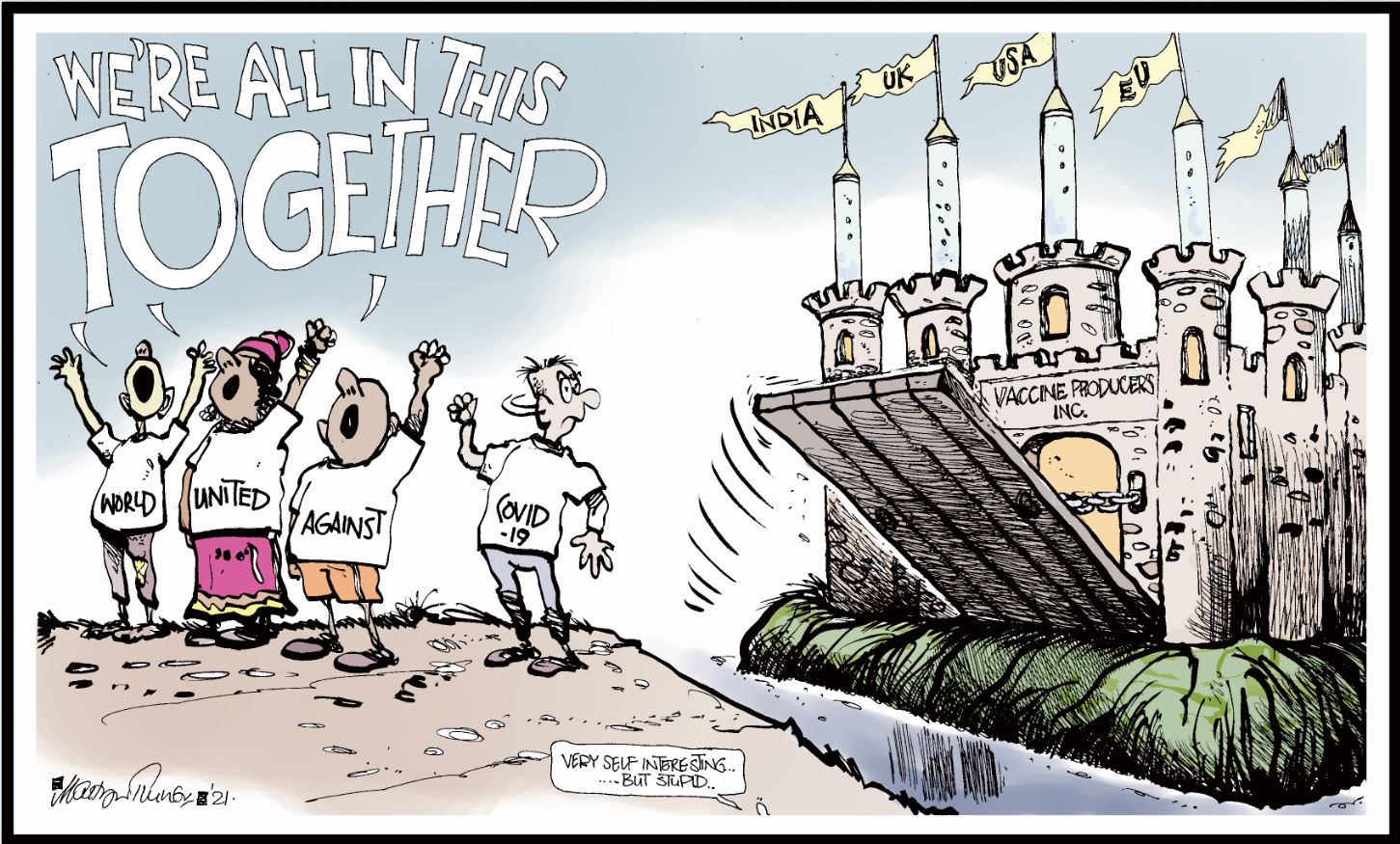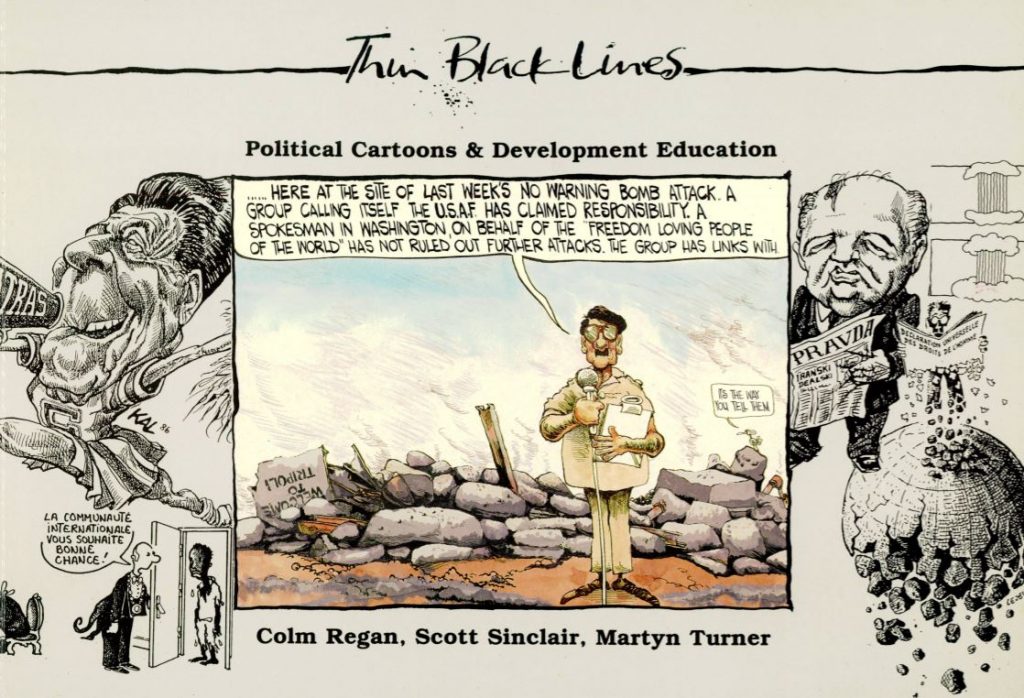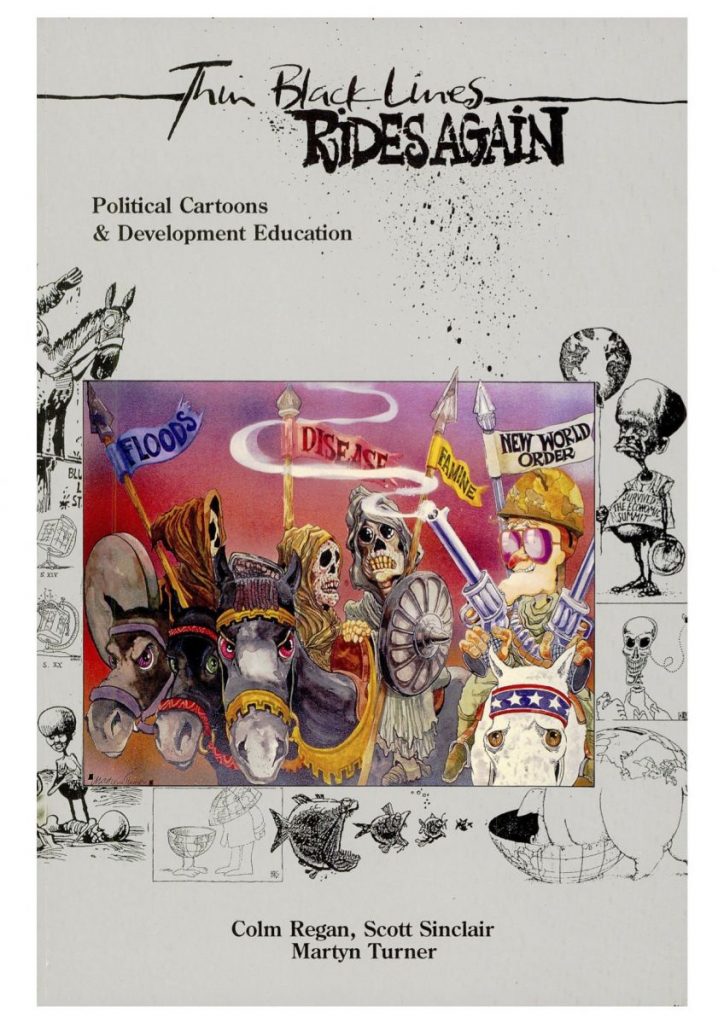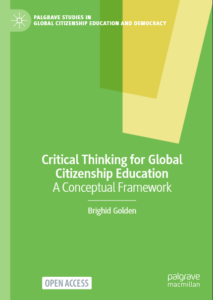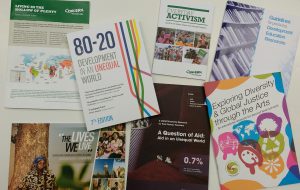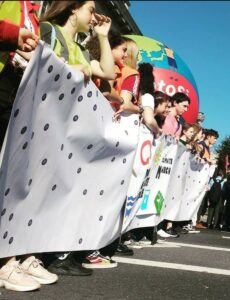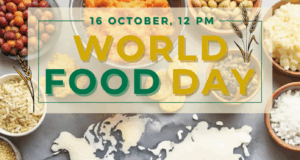This cartoon by Martyn Turner says so much. This is true of a great many of his cartoons over more than five decades now. His capacity to get to the core of an issue is uncanny – a skill developed and honed over many, many years. Martyn likes to downplay and even dismiss his skill and political intelligence but over a period of nearly 30 years now, I have watched in admiration just how much thought and effort he expends in trying to display brilliance (I choose that word deliberately) as mundane.
For me, Martyn’s corpus of work is anything but mundane.
He sucks up news, reads voraciously, distils ideas and details constantly and creates equations and formulas that pinpoint acutely. He reminds me of an expert chef making a particularly concentrated sauce. Anyone with a cursory familiarity with his work on Northern Ireland will recognise this immediately. Similarly with his work on broader international, development and human rights issues.
I have known Martyn for many years, and I not only admire his work I have also learned to admire the man behind that work for his fierce commitment to basic human decency, something I believe shines out. As with any serious political cartoonist, he does this with equal doses of arrogance and humility.
It is to Martyn’s great credit that he has become one of Ireland’s favourite Englishmen as any editor of the Irish Times will attest. While his views on Irish history and culture do not sit well with many traditionalists (especially those of a particular republican persuasion) his ‘take’ on Ireland is widely respected. This is particularly true when his work touches any of our very many raw nerves. For me, Martyn displays the very best features of a well-informed ‘outsider’ sticking a finger in Irish eyes.
Given his history and experience over very many years in Northern Ireland, his viewpoint is maddingly accurate and perceptive, so much so that he has on occasion been threatened for his work. His forensic carve-up of the many isms that have plagued our island, North and South has been hilarious and simultaneously acerbic. Being a pacifist to the core, Martyn’s pen has never spared the women and men of violence on any side including those of the state. Nor has he ever spared the blushes of the ‘great and the good’ on our nearest and dearest neighbours across the Irish Sea.
As Martyn himself might (and probably has) said, he is equally unbalanced.
For me, he is without doubt one of the great chroniclers of modern Irish history, something already recognised and marked by the National Library.
Many years ago, Martyn taught me one of the secrets of the best political cartooning – the linking together of issues and items that do not, at first sight appear linked or relevant to each other. He encapsulated this talent which he displays in abundance in a question (which he has drawn many times) ‘why is it that fat people so often talk of world hunger’? – in a word, ouch! Being a fan of snooker on television, he was taken with Dennis Taylor’s ‘upside down’ glasses. Predictably, these appeared in a subsequent cartoon in the employ of then Taoiseach Garret Fitzgerald as he tried to make sense of ‘bad news’ statistics.
Martyn’s brand of internationalism and his rootedness in human dignity and rights has always been apparent. The (very) limited selection of cartoons below highlights this – they do not need words!
Many see Martyn’s cartoons, give a wry smile (or a guffaw) and then move on to the ‘serious’ journalism of the ‘word’ (a medium in which Martyn is also annoyingly skilled). However, his corpus of work offers extraordinarily rich pickings for any analyst or educator. To this end, together with my colleague and friend Scott Sinclair, we published with Martyn two editions of Thin Black Lines on the value and use of cartoons in education. Both books proved to be highly successful as the pillaging of their contents by others in the trade attested.
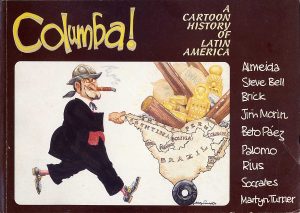 Along with Martyn, I have published Columba: a cartoon history of Latin America (Potatoe Press) featuring the work of nine other cartoonists (including those from the region) to mark 500 years in the pillage of that Continent.
Along with Martyn, I have published Columba: a cartoon history of Latin America (Potatoe Press) featuring the work of nine other cartoonists (including those from the region) to mark 500 years in the pillage of that Continent.
Again, it attests to the power of political cartooning, particularly at the hands (and in the head) of skilled master craftsman Martyn Turner.
Note: I am happy to openly declare a conflict of interest here. Some 30 years ago, I approached Martyn looking for a ‘freebie’ cartoon to adorn an early edition of 75:25 Development in an Unequal World. After some banter, he agreed, and we have been colleagues and friends ever since.
- This post is part of the Martyn Turner series – a special series on developmenteducation.ie
- See one of Martyn’s cartoons up close in the interactive What do you see? Money the G7 will spend that could save people’s lives
- Featured cartoon credits: We’re all in this together? Cartoon by © Martyn Turner, 27th March 2021.

